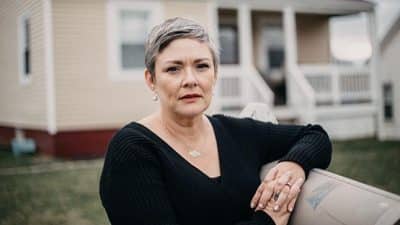Those in the room were already in on the secret, but U.S. Sen. Tim Kaine seemed genuinely surprised when one of the local business leaders at an economic roundtable at the Valley Career and Technical Center in Fishersville on Tuesday blurted it out.
There’s a stigma in middle and secondary education about steering tweens and teens in the direction of vocational education. Still.
“I knew that there was that stigma when I was in school,” said Kaine, who toured the VCTC, which assumed its new name today after being known for years as the Valley Vocational Technical Center.
Kaine, the co-chair of the Senate Career and Technical Education Caucus, got an up close and personal look at CTE in action, talking with students in the school’s nursing and welding programs and recent graduates of trade programs in their early 20s who are already gainfully employed, productive members of society.
But to that stigma: it still can seem to parents, teachers and guidance counselors that kids who go down the vocational path that they are selling themselves short.
Kaine has seen the military treat its soldiers the same way, noting that programs that give soldiers opportunities to further their educational attainment with grants have strings attached that don’t allow monies to be used for career certificates that in some cases would be more valuable than college class credits.
The tour of VCTC served as the backdrop for the announcement of legislation, The Educating Tomorrow’s Workforce Act, that would amend the Carl D. Perkins Career and Technical Education Act to better meet the needs of a 21st century workforce and ensure students have access to the highest-quality CTE programs.
Over and over during the roundtable with local business leaders, Kaine heard about how there is a dearth of qualified employees in specialized jobs like welding, metal fabrication, technology and nursing.
“I’m very passionate about career and technical education and I’m committed to raising the profile of CTE programs, whether they are offered through PreK-12 education, independent technical centers like this one, or community colleges,” Kaine said.











